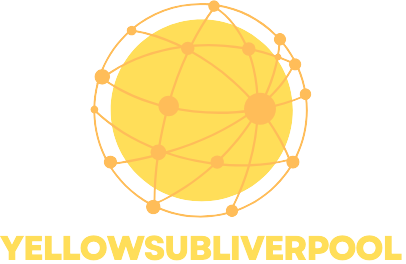Table of Contents
ToggleThe blockchain market is rapidly evolving, capturing the attention of investors, businesses, and tech enthusiasts alike. With its promise of decentralization and transparency, blockchain technology is reshaping industries from finance to supply chain management. As the demand for secure and efficient solutions grows, understanding the dynamics of this market becomes crucial for stakeholders.
In this analysis, key trends, challenges, and opportunities will be explored, shedding light on how blockchain is not just a passing trend but a foundational technology for the future. By examining the current landscape and future projections, readers will gain valuable insights into the potential of blockchain to drive innovation and economic growth across various sectors.
Overview of Blockchain Technology
Blockchain technology serves as a decentralized digital ledger that records transactions across multiple computers. This transparency ensures that alterations to the data become difficult, enhancing security and trust among users. Each transaction forms a block, which links to the previous block, creating an immutable chain.
Core attributes include:
- Decentralization: Reduces reliance on central authorities, limiting points of failure.
- Transparency: Provides visibility into transaction history, fostering accountability.
- Security: Employs cryptographic techniques to protect data integrity and prevent unauthorized access.
- Immutability: Once recorded, transactions cannot be modified or deleted, maintaining a reliable history.
Various industries leverage blockchain technology, from finance and healthcare to supply chain management and real estate. Financial institutions use blockchain for secure cross-border payments, while supply chains benefit from increased traceability and reduced fraud.
The rise of cryptocurrencies, such as Bitcoin and Ethereum, showcases blockchain’s transformative potential. These digital currencies utilize the technology to offer secure peer-to-peer transactions, attracting both individual investors and institutional players.
As integration expands, challenges arise, including scalability issues, regulatory uncertainties, and energy consumption. Addressing these obstacles is vital for blockchain’s sustained growth and mainstream adoption, driving innovation and economic advancement.
Current Trends in Blockchain Market

The blockchain market continues to gain traction as various sectors integrate this technology. Investment in blockchain solutions reflects both a burgeoning interest and a shift towards adoption in diverse applications.
Adoption Rates Across Industries
Adoption of blockchain varies significantly among industries. According to a 2023 report by Statista, financial services lead with an adoption rate of 60%, followed by supply chain management at 45% and healthcare at 30%. Organizations recognize blockchain’s advantages, such as improved transaction efficiency, enhanced security, and better data management. Key players, including IBM and Microsoft, provide blockchain-as-a-service (BaaS) solutions, facilitating smoother integration for businesses. The manufacturing sector also explores blockchain to optimize processes, improve traceability, and foster collaboration. Increased awareness of blockchain’s potential has accelerated its acceptance across diverse industries, aligning with current demands for transparency and security.
Emerging Use Cases
Several emerging use cases illustrate blockchain’s expanding influence. One notable application is decentralized finance (DeFi), which offers users peer-to-peer financial services without intermediaries. As of 2023, DeFi platforms account for nearly $50 billion in total value locked (TVL), indicating significant growth. Non-fungible tokens (NFTs) also gain popularity, transforming how digital assets are bought, sold, and owned in the art and entertainment sectors. Supply chain integrity relies on blockchain for real-time tracking of goods, minimizing fraud and ensuring accountability. Additionally, voting systems explore blockchain to enhance transparency and security, potentially reducing electoral fraud. These use cases demonstrate how blockchain shapes future technology landscapes by providing innovative solutions.
Key Players in the Blockchain Market
The blockchain market features numerous influential companies and startups driving innovation and adoption. Understanding these key players provides insight into market dynamics and future developments.
Major Companies and Startups
- IBM
IBM offers a comprehensive suite of blockchain solutions, focusing on enterprise applications across various sectors. Its Hyperledger technology enables companies to collaborate securely while maintaining data privacy.
- Microsoft
Microsoft supplies blockchain-as-a-service (BaaS) through its Azure platform, allowing businesses to build and deploy blockchain networks efficiently. Its initiatives support both private and public blockchain solutions.
- Ethereum Foundation
The Ethereum Foundation plays a crucial role in the development and maintenance of the Ethereum blockchain, promoting decentralized applications (dApps) and smart contracts. Its ecosystem fosters innovation in areas like decentralized finance (DeFi) and non-fungible tokens (NFTs).
- Ripple
Ripple focuses on payment solutions and cross-border transactions using its blockchain technology. The company’s network offers fast, secure, and cost-effective international money transfers.
- Chainalysis
Chainalysis provides blockchain data and analysis software to law enforcement agencies and financial institutions. The company’s tools enhance compliance efforts, reduce fraud, and promote transparency in cryptocurrency transactions.
- Tezos
Tezos is an open-source blockchain platform that employs a unique self-amending protocol. This feature allows for upgrades without requiring hard forks, ensuring stability and attracting a diverse range of applications.
Market Share Analysis
| Company | Market Share (%) |
|---|---|
| IBM | 10 |
| Microsoft | 8 |
| Ethereum | 15 |
| Ripple | 5 |
| Chainalysis | 3 |
| Other Startups | 59 |
The market share reflects the competitive landscape within the blockchain sector, with multiple startups collectively holding a significant portion. Established companies like IBM and Microsoft lead with substantial investments and resources, while emerging firms capitalize on niche applications and innovative solutions. This diversification fosters a dynamic environment, driving the ongoing evolution of blockchain technology across various industries.
Challenges Facing the Blockchain Market
The blockchain market faces several significant challenges that hinder its growth and mainstream adoption. Addressing these concerns is essential for unlocking the technology’s full potential across various industries.
Regulatory Concerns
Regulatory issues pose a major barrier to the blockchain market. Governments worldwide grapple with how to classify and regulate cryptocurrencies and blockchain applications. Uncertainty surrounding regulations creates apprehension among investors and businesses, stalling investments and innovation. Countries like the United States have proposed frameworks but lack uniformity, leading to a fragmented regulatory environment. In contrast, nations like China enforce strict regulations, limiting the market’s growth potential. Furthermore, compliance with anti-money laundering (AML) and know-your-customer (KYC) requirements complicates operations for blockchain startups, restricting their ability to scale.
Scalability Issues
Scalability presents another significant challenge for blockchain technology. Current platforms often face limitations in transaction throughput, affecting speed and efficiency. For example, Bitcoin processes 7 transactions per second, while Ethereum handles approximately 30 transactions per second. In contrast, centralized payment processors like Visa can manage over 24,000 transactions per second. As user adoption grows, networks may struggle to meet demand without sacrificing security or decentralization. Solutions such as layer 2 protocols and sharding offer potential but require further development and testing to ensure effectiveness. Organizations must invest in scalable technologies to maintain performance as the blockchain ecosystem expands.
Future Predictions for Blockchain Market
The blockchain market exhibits strong potential for growth and innovation as it adapts to emerging trends and technologies. Analyzing future predictions reveals key areas poised for expansion.
Potential Growth Areas
- Decentralized Finance (DeFi): DeFi platforms facilitate lending, borrowing, and trading on decentralized networks. Market analysts project DeFi assets will exceed $200 billion by 2025 as user adoption rises.
- Supply Chain Management: Batch tracking and transparency in supply chains improve with blockchain integrations. Major companies could implement blockchain solutions in over 70% of their supply chains by 2024.
- Healthcare Applications: Blockchain enhances patient data security and interoperability. Healthcare organizations might invest in blockchain technologies, with anticipated funding reaching $5.6 billion by 2025.
- Government Services: Blockchain’s potential for secure voting and identity verification could lead to widespread adoption in government sectors. Predictions suggest that blockchain systems may be employed in over 20% of government applications by 2026.
- Non-Fungible Tokens (NFTs): NFTs continue to gain traction in art and entertainment. Analysts estimate the NFT market could reach $80 billion by the end of 2025, fueled by increased digital content creation.
Impact of Innovations
- Smart Contracts: Utilizing blockchain for self-executing contracts streamlines agreements, reducing legal costs. Smart contracts may account for a substantial share of blockchain transactions, potentially increasing efficiency by 50%.
- Interoperability Solutions: Blockchain innovations focusing on interoperability allow different networks to communicate effectively. The development of protocols that enable cross-chain functionality can expand user bases and adoption rates significantly.
- Layer 2 Solutions: Technologies that enhance blockchain scalability without compromising security are expected to increase transaction speeds. Implementing Layer 2 solutions could boost transaction throughput by tenfold over the next few years.
- Enterprise Blockchain: Companies adopting private and consortium blockchains can enhance transaction efficiencies and data sharing. By 2025, enterprise blockchain applications may dominate, comprising over 60% of all blockchain investments.
- Regulatory Technology (RegTech): Blockchain’s potential in improving compliance processes allows organizations to reduce costs related to KYC and AML compliance. Investment in RegTech solutions within the blockchain space could see growth surpassing 25% annually.
The blockchain market stands at a pivotal moment filled with opportunities for innovation and growth. As industries increasingly recognize the benefits of decentralization and transparency, the demand for blockchain solutions is set to rise. Major players and emerging startups are driving advancements that will shape the future of technology.
While challenges like regulatory hurdles and scalability issues remain, the potential for transformative applications in finance, healthcare, and supply chain management cannot be overlooked. With continued investment and development, blockchain is poised to redefine how transactions are conducted and trust is established across various sectors. The future looks bright for those willing to embrace this revolutionary technology.







